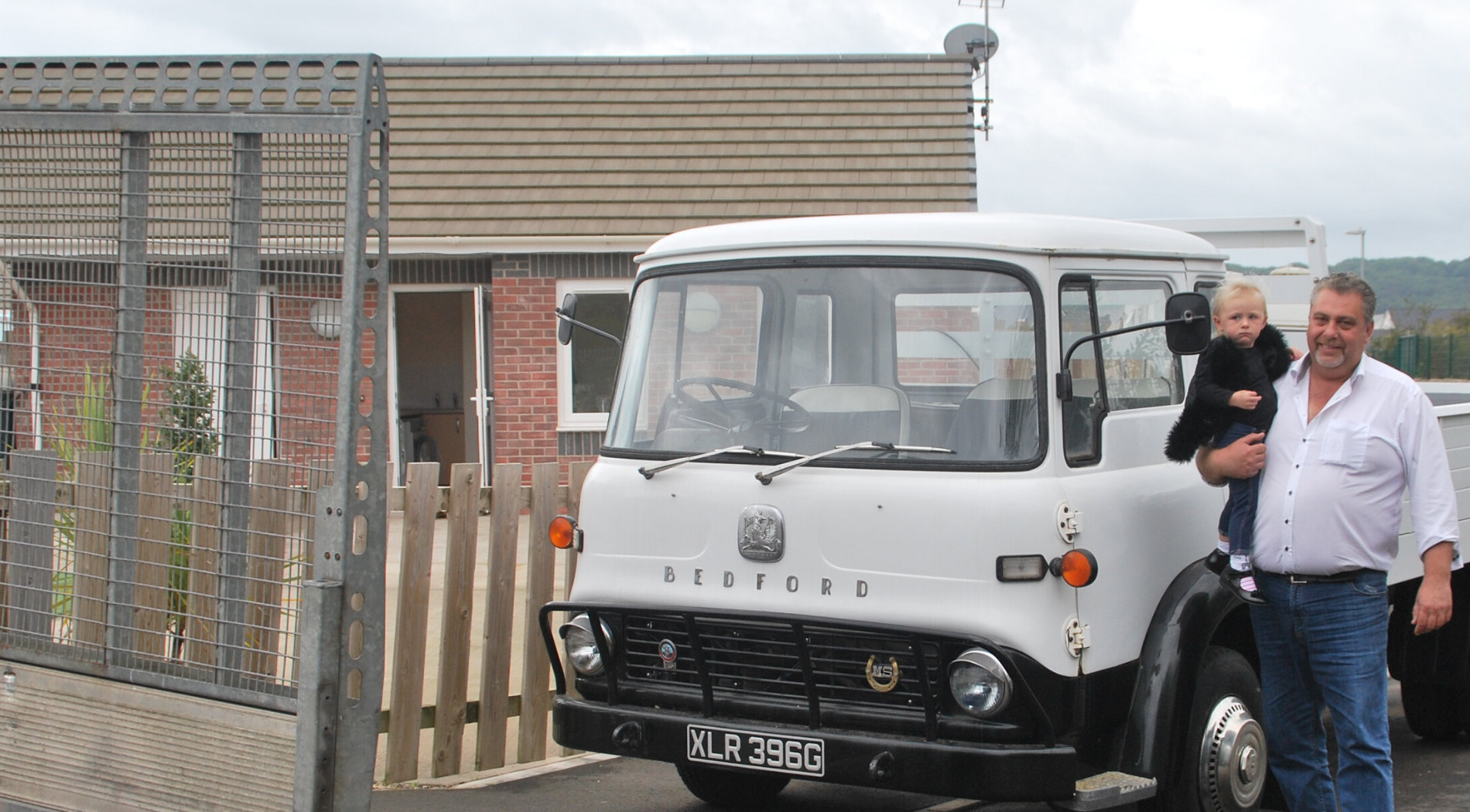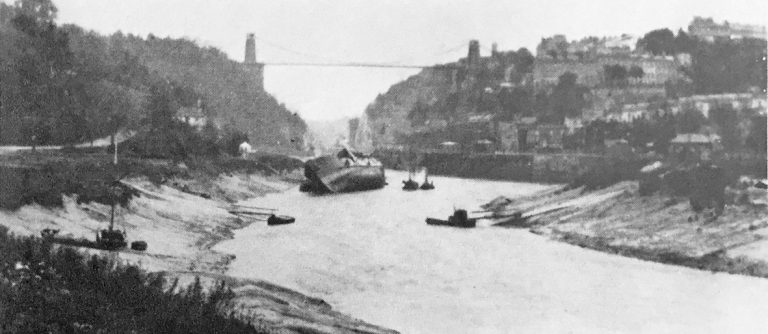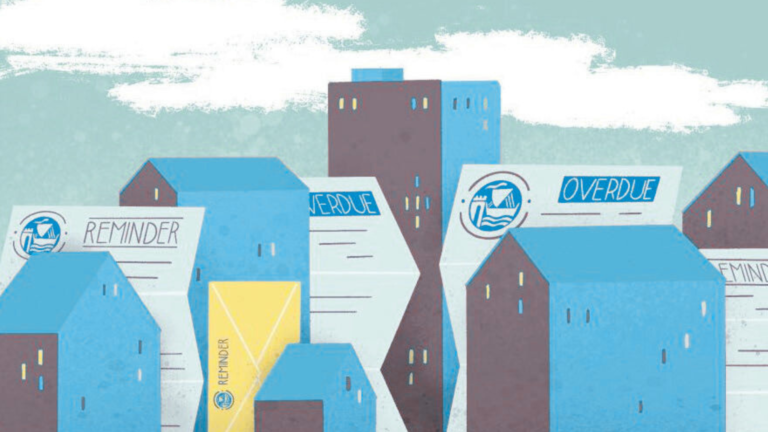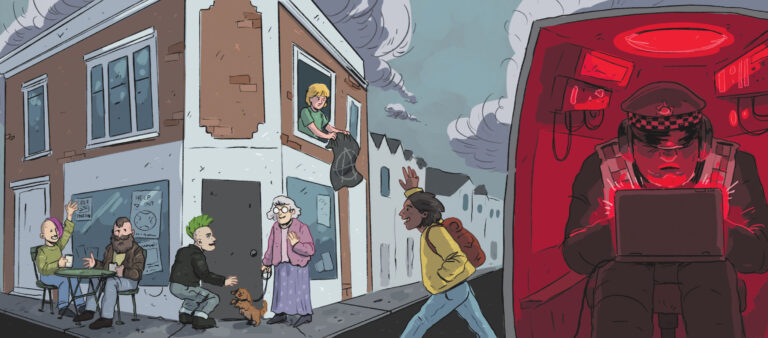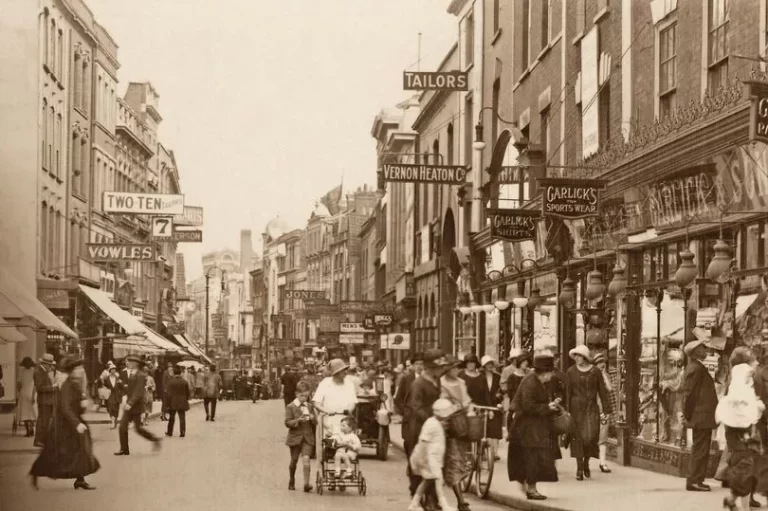Prejudice against Gypsies and Travellers is still the last ‘respectable’ racism, but is it getting worse?
Photos: Hannah Vickers
Unauthorised encampments have long been a source of contention between Travellers running out of places they can legitimately stay and locals frustrated by their green spaces being taken over.
Last year in Weston-super-Mare, tensions between Travellers on an unauthorised encampment and locals boiled over when a resident, frustrated that they weren’t being moved on quickly enough, organised a protest on Facebook. Within hours of the post going up, hundreds were on the grounds of Baytree Recreation Ground, surrounding the group of caravans and shouting. Some had brought their children to join in.
Police were called in to keep the peace, but some of the protesters were threatening to burn the caravans, tightening their circle around the camp as it got darker, and the police decided that the safest course of action was to escort the Gypsies off the site. Children hid with their mums in the caravans as the locals got closer, chanting “Out! Out! Out!”.
“They were there to cause damage, and they were there to hurt them,” says Danny Davies-and-Smith, a Romany Gypsy living on one of the council sites. “Now, once that kicked off, where would it have stopped? ‘Cos they would have got carried away, wouldn’t they? They’d have had no thought for children, they didn’t care about that: yeah, so? It’s Gypsies.”
I’m visiting one of the council-owned Traveller sites in Weston-Super-Mare a year after the protest, asking the residents what it’s like to be a Gypsy in the south west in 2018, and if things are better than they used to be. The residents here don’t think things have improved, just that the methods have changed—now instead of injuring the horses pulling the wagons, angry locals damage caravans and a lot, but not all, of the verbal abuse has gone online. Most of people I talk to won’t let me publish their names or take their picture because they’re worried it could make their work lives difficult—or even lose them a job—if people find out that they’re Gypsies.
“We’re treated like pure dogs, you know?”. Davies-and-Smith and his wife Clarissa Smith are used to being treated differently because of their race. Davies-and-Smith’s family have been travelling up and down the A38 from Evesham to Exeter for the last 150 years. He and Smith now live with their children on the 24-pitch site containing a caravan, a kennel for their dogs and a utility block with a living area and bathroom. The site is hard to find, near a motorway and sandwiched between a scrapyard and a cement works. When I arrive, his 14-year-old son has just finished washing the caravan and is standing on the roof, brushing off the water with a broom.
“You can’t tell non-Gypsies what you are,” says Clarissa. “If you go to school and you’re the only one you might be lucky enough to blend in.” She’s from Taunton and says that the other children called her names when they found out she was a Gypsy but it wasn’t as bad for her as it could have been because she lived on an official site.
“In a non-Gypsy’s mind you weren’t a Gypsy any more, because you didn’t move around, so you were more accepted. [But] it’s very very hard, it’s always a fight.”
We’re sat in the living space of their utility block and she’s got her youngest who’s just started preschool in her lap. Through the window you can see the green metal fencing separating off their plot.
“It’s hard. You shouldn’t be ashamed of who you are”
“I’ve done loads of different jobs through my lifetime. I can be the best worker I want and handle as much money as I want and” – she picks her phone up off the table – “not do that. But as soon as they know who you are, that’s it, you’re finished. You can be as good as you want, be as kind as you want, be as nice as you want but it just doesn’t make any odds to anyone. And it’s a very very very hard life.
“It’s hard. You shouldn’t be ashamed of who you are.”
“I think every area’s pretty much the same,” adds Davies-and-Smith. He thinks that things are just as bad as they’ve always been for Gypsies and Travellers, maybe even worse now. When his grandfather drew up on the Mendips so his grandmother could give birth, a police officer turned up while they were still looking for a doctor to tell them to be on their way. Nowadays, very few of the traditional Stopping Places—land that Travellers are allowed to stay on—exist, and there aren’t many places Travellers are allowed to be any more.
The last ‘respectable’ form of racism?
It’s 13 years since Commissioner for Race Equality Trevor Philips called discrimination against Gypsies and Travellers the last ‘respectable’ form of racism, likening Britain to how the American deep south was for black people in the 50s, but a 2017 report by the Traveller Movement found that discrimination against Gypsies and Travellers is still alive and well today.
The figures paint a grim picture. 91% of Gypsies and Travellers who took part in the survey said they’d experienced discrimination because of their ethnicity, 55% had been refused services, 77% had been victims of hate speech and most had experienced some form of discrimination in education (70%), employment (49%) and healthcare (30%).
Worse than this was the fact that respondents felt they couldn’t do anything about it, with 76% hiding their ethnicity to avoid prejudice and 77% not seeking legal help. Why bother going to the authorities when you know nothing is going to be done about it? Another report from the Traveller Movement earlier this year revealed strong unconscious bias in the police force, with police generally assuming Travellers to be criminals rather than victims.
“They haven’t that long taken down the signs off the pubs saying ‘No Travellers allowed’,” Davies-and-Smith points out.
Several times during our conversation he stops and says that it doesn’t matter what anyone writes, nothing is going to change, that it’s been this way forever and will always be this way.
“This is every day of your life, this is a normal way of life.” He says that prejudice about Gypsies is “passed on from generation to generation – ‘Cos parents put it into kids’ brains when they’re young… It goes into their kids and their kids and their kids.
“And my children, they’ve got to learn to accept it,” he concludes.
“Out! Out! Out!”
“If you’d seen what went on down at that rec [Baytree Recreation Ground], it was disgusting,” Maria Neale, Romany Gypsy and an ex-site officer, tells me.
“There were pregnant women inside. It’s almost as if our children don’t matter. I hate to think what went through those children’s heads when all that was going on. There was two or three hundred people there, you can’t tell me that that’s not going to affect those children for the rest of their lives. I was a Gypsy child who went to school in the 70s. I didn’t ever forget what went on.
“You’ve got to understand I was brought up in this town. And I know a lot of the outside community, so for me it’s awful because some of those people down on that rec were people that I classed as friends.”
One mother, now living on the same Traveller site as Davies-and-Smith, was inside one of the caravans with her then two-year-old son on the night of the protest.
“It was frightening, it was scary. You didn’t know what was going to happen,” she tells me. “There was loads of children there.”
I meet up with a man who was in one of the caravans that night. He says he’s tried to get on the list for a space on an official site but has been told he’s not eligible. On the day I visit, he’s preparing to move off a piece of land after getting an eviction order from North Somerset Council. “It was bad. It was frightening,” he tells me. “‘Cos obviously it was that many people you don’t know what to do. All the littluns were there, all the kids were there.”
A young mum and her three-year-old son (far left) who were in the caravans on the night of the protest last year
Local resident, Russell Coles wasn’t at the protest but came across it when he was on his way home. “I’ve never seen anything like it before,” he says.
“I get it, residents don’t want it [an unauthorised encampment] on their doorstep,” he tells me, but says that they were going to be moved on within 48 hours anyway. “I think that the whole thing got out of control and I think possibly the residents were overreacting in the end.”
But one resident, who asked to not be named, said that the Travellers on the encampmet destroyed the field and that the protest wasn’t racially motivated.
“The reason the community got together was because they were playing loud music and also doing donuts on the field late at night – on a field surrounded by houses with kids inside. The field was wrecked, he tells me.
If they did act respectfully, then this would not have happened, I for one would have stayed at home as I have no problem at all with Travellers, but the issue was the behaviour. Had it been respected and looked after, I doubt anyone would have turned up”.
Police “let the local community do what they wanted”
A lot of the people I meet on the site are critical of the police’s inactivity that night and say that they escorted the wrong group off the site.
Davies-and-Smith criticised the police’s decision to make the Travellers leave and not the protesters. He said they could have left a couple of duty officers there to see the night through so they could leave in the morning. “‘Cos they would if you were in a council house.” Instead, they had to hitch up the caravans at 10pm and find somewhere else.
Video produced with permission from one of the protesters
Maggie Bendell-Smith, 77-year-old Gypsy rights activist and author, told the Cable that the police were there but didn’t get involved “until it was really heated and high and children were in danger”.
“The police stayed out on the outside line and let the local community do what they wanted,” she says.
However, a police spokesperson said that the decision to leave was made by the Travellers and that they helped to facilitate their departure from the site.
Vigilantism on the rise?
Neale says that it’s getting worse. “I think there’s a lot more vigilante sort of thinking about it. You know, if the council aren’t going to do anything, if the police aren’t going to do anything… they don’t realise that there are rules set in place to protect us. Not very much, but there are rules set in place.”
While private landowners can evict unauthorised encampments more quickly, local authorities have a duty of care towards anyone camped on their land and can’t evict until they’ve done welfare checks. The council has to balance duties to the public with welfare needs of the Travellers. After last year’s protest, Neale is convinced that vigilantism against Gypsies is on the rise.
Ex-site manager Maria Neale and Gypsy rights activist Maggie Smith-Bendell
“They’ll all group together and they’ll hound someone off somewhere. And there’s never any thought given to what’s going on with the children that are in them trailers. Or the pregnant mums.”
Residents in West Wick, on the outskirts of Weston-super-Mare, planned a copycat protest this summer. It didn’t happen, because the police visited the encampment and “advised them heavily to move on due to the planned protest”, according to the protest organisers. Davies-and-Smith is worried that it shows a disturbing new attitude. “That’s what? A new trend now, is it? Is this like ‘oh what we’re doing now, if any Traveller pulls on anywhere we will riot on them. Is this going to be a new trend?”
“They don’t do themselves any favours, do they?”
Residents who have seen their local parks and green spaces made a mess of time and time again are understably frustrated, but it’s a minority of Travellers who park up on public spaces, and a minority of them who leave a mess. Unfortunately for everyone else, they’re the people everyone else thinks of when they think of Gypsies and Travellers.
“Well, they don’t do themselves any favours, do they?” says one person I talk to, remembering an encampment that appeared near him a few years ago. Another describes the anti-social behaviour from an unauthorised camp on a green near his house last year, saying they damage green spaces and leave mess. Online, the opinions are more strongly worded.
“It’s because nine times out of 10, the ones you meet are the bad ones,” says a man who doesn’t want to be named. “It’s only the ones leaving the rubbish you see, ‘cos they’re playing up and they’re being bad. If you met me in a shop or walked by me in a shop or sitting in a caff or in a pub you probably wouldn’t even know I’m a Gypsy man.
“The only ones you’d class as Gypsy is the one you see rowing and fighting and taking other people’s stuff, doing the bad things, but they ain’t over there,” he gestures around the site, “which is true Romanies through and through.”
“You cannot move onto the side of the road, you cannot move onto a site and you cannot move onto your own land.
Where do you live?”
Just 16% of the 300,000 Gypsies and Travellers in the UK live on unauthorised encampments. The majority are in houses and the rest live on their own land—though getting planning permission as a Traveller is notoriously difficult—or rent pitches on private or public land. Despite this, the only time you hear about Gypsies or Travellers is when caravans park up somewhere they’re not meant to.
“There is nowhere for a Traveller to go,” says Davies-and-Smith. The construction of official Traveller sites has not kept pace with the destruction of Stopping Places – and they’re always built on land that’s no good for non-Gypsies, says Davies-and-Smith—and there is a chronic shortage of places for a Gypsy to legitimately be. Only 4% of Gypsy families get planning permission to move their caravans onto land they own themselves.
“So technically there is nowhere for anybody to go now is there? You cannot move onto the side of the road, you cannot move onto a site and you cannot move onto your own land. Where do you live?”
The Cable does not tolerate hate speech and offensive comments will be deleted and reported.
Are you affected by any of the topics raised in this article? If you would like to share your experience, please get in touch: content@thebristolcable.org
